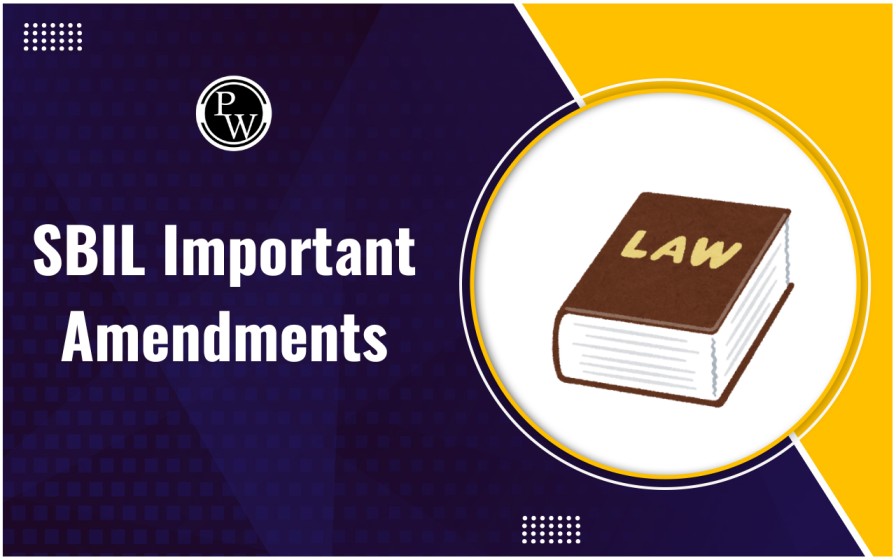
Foreign Direct Investments Regulations and Policies: Foreign Direct Investment (FDI) is any investment made into a country by a company or individual based in another country. Since 1991, India has opened up various ways to invite foreign direct investment (FDI), which has positively impacted the economic scenarios in India with the growth of many industrial sectors. The Foreign Direct Investment (FDI) regulations and policies specify several aspects, such as investment thresholds, investment terms, entry routes for distinct sectors, and other important considerations.
Foreign Direct Investments – The Legal Framework
Foreign Direct Investment (FDI) is primarily controlled by the Foreign Exchange Management Act (FEMA) of 1999 and the Reserve Bank of India's (RBI) guidelines and regulations. The Department for Promotion of Industry and Internal Trade (DPIIT) and its consolidated policy on foreign direct investment also play a major role in regulating FDI in India. The regulatory framework and several policy reforms largely contribute to the increasing trend of FDI in India. It aims to liberalize the economy to a global platform and facilitates a smooth way to invest in Indian businesses.Routes of Foreign Direct Investments
As per FEMA regulations, there are primarily two routes through which FDI is allowed in India. We will explain these in detail.Automatic Route of FDI
In this mode of FDI, prior approval from the government or RBI is optional. Some sectors that can receive FDI through automatic route and the corresponding investment volume are given in the table below.| Automatic Route of FDI | |
| Sector | Investment Quantum |
| Medical devices | Up to 100% |
| Thermal power | Up to 100% |
| Insurance | Up to 74% |
| Infrastructure companies in the securities market | Up to 49% |
| Power exchanges | Up to 49% |
| Petroleum refining | Up to 49% |
| Defence | Up to 74% |
| Telecoms | Up to 100% |
| Oil and gas | Up to 49% |
Government Route of FDI
Under the government route, the foreign entity must get the government's permission to proceed with the FDI. After consulting with the DPIIT, the relevant ministry or department reviews this proposal and decides on its approval. Some sectors that can receive FDI through automatic route and the corresponding investment volume are given in the table below.| Government Route of FDI | |
| Sector | Investment Quantum |
| Broadcasting Content Services | Up to 49% |
| Banking & Public sector | Up to 20% |
| Food Products Retail Trading | Up to 100% |
| Multi-Brand Retail Trading | Up to 51% |
| Mining and Minerals separations of titanium-bearing minerals and ores | Up to 100% |
| Satellite (Establishment and operations) | Up to 100% |
| Print Media (publishing of newspapers, periodicals, and Indian editions of foreign magazines) | Up to 26% |
Foreign Direct Investments: Sectoral Caps
It is important to note that the FDI under automatic route is permitted up to a specific limit in certain sectors. The government approval route needs to be followed for any investment beyond that. Some of the examples are as follows:- The FDI in the defence sector falls under the automatic route of only up to 74% and requires government approval for any foreign investment beyond that.
- Private sector banking can receive FDI up to 74%, of which only 49% comes under the automatic route, and the investment amount beyond 49% and up to 75% requires government approval.
Foreign Direct Investments: Prohibited Sectors
The FDI rules and policy prohibit specific sectors from receiving Foreign Direct Investment (FDI). These are as follows:- Atomic Energy Generation
- Nidhi Company
- Lottery business (online, private, government, etc.)
- Investment in Chit Funds
- Trading in Transferable Development Rights (TDR)
- Any Gambling or Betting businesses
- Manufacturing of cigars, cigarettes, cheroots, or any related tobacco industry
- Real Estate and Buildings (except townships, commercial projects, etc.)
Foreign Direct Investment Latest Amendments in Regulations
The following regulations and rules have been recommended per the new Foreign Direct Investment (FDI) policy amendments.- An entity of a nation that shares borders with India on land, or where the beneficial owner of an investment in India is a citizen of any such country, can only invest through the government route.
- Government permission is also required to transfer ownership in an FDI agreement that benefits any nation bordering India.
- Investors from countries not covered by the new regulation only need to notify the RBI after the investment instead of requesting prior approval from the appropriate government agency.
FDI Regulations and Policy: Legal Implications
Violations of FDI regulations and laws can lead to legal actions taken by the Directorate of Enforcement (ED) under the Foreign Exchange Management Act (FEMA) provision. It includes imposing penalties for breaking the FDI rules and legislation. Any violation carries a fine of up to three times the amount involved if it can be quantified. Otherwise, ED can charge up to INR 200,000, or around US$2,400. We hope this article on Foreign Direct Investments (FDI) gives you some useful and relevant information to enrich your knowledge. To learn more about FDI and other topics covered in your CS syllabus from experienced faculties, join Physics Wallah CS online classes to enhance your preparation and achieve academic success.Foreign Direct Investments FAQs
How can a foreign investor establish business operations in India through a company?
As per the Companies Act of 2013 provisions, a foreign investor can establish a company and conduct business in India.
Can Indian Limited Liability Partnerships (LLPs) receive investments from foreign investors?
Yes, Limited Liability Partnership firms can receive FDI following the regulations narrated under the FDI policy.
What are the risks involved in FDI?
A company may incur losses if it invests in a country where the currency is devaluing.
Is FDI just about the inflow of money?
FDI is not only about the inflow of money; it also includes incorporating technology, knowledge, skills, and expertise.
Who regulates FDI in India?
Under the Foreign Exchange Management Act (FEMA), India's Department of Promotion of Industry and International Trade (DPIIT) regulates FDI.
🔥 Trending Blogs
Talk to a counsellorHave doubts? Our support team will be happy to assist you!

Free Learning Resources
PW Books
Notes (Class 10-12)
PW Study Materials
Notes (Class 6-9)
Ncert Solutions
Govt Exams
Class 6th to 12th Online Courses
Govt Job Exams Courses
UPSC Coaching
Defence Exam Coaching
Gate Exam Coaching
Other Exams
Know about Physics Wallah
Physics Wallah is an Indian edtech platform that provides accessible & comprehensive learning experiences to students from Class 6th to postgraduate level. We also provide extensive NCERT solutions, sample paper, NEET, JEE Mains, BITSAT previous year papers & more such resources to students. Physics Wallah also caters to over 3.5 million registered students and over 78 lakh+ Youtube subscribers with 4.8 rating on its app.
We Stand Out because
We provide students with intensive courses with India’s qualified & experienced faculties & mentors. PW strives to make the learning experience comprehensive and accessible for students of all sections of society. We believe in empowering every single student who couldn't dream of a good career in engineering and medical field earlier.
Our Key Focus Areas
Physics Wallah's main focus is to make the learning experience as economical as possible for all students. With our affordable courses like Lakshya, Udaan and Arjuna and many others, we have been able to provide a platform for lakhs of aspirants. From providing Chemistry, Maths, Physics formula to giving e-books of eminent authors like RD Sharma, RS Aggarwal and Lakhmir Singh, PW focuses on every single student's need for preparation.
What Makes Us Different
Physics Wallah strives to develop a comprehensive pedagogical structure for students, where they get a state-of-the-art learning experience with study material and resources. Apart from catering students preparing for JEE Mains and NEET, PW also provides study material for each state board like Uttar Pradesh, Bihar, and others
Copyright © 2025 Physicswallah Limited All rights reserved.
Get App









